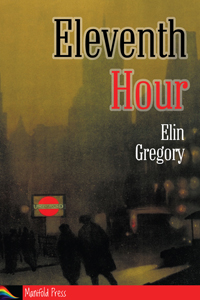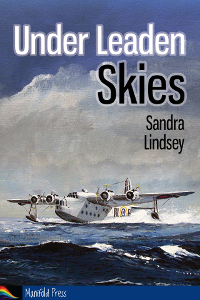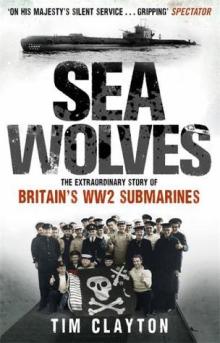July 2016
Monthly Archive
July 28, 2016
On Monday, two new works of historical fiction by members of the Macaronis will be available for your perusal…
Eleventh Hour by Elin Gregory
Borrowed from the Secret Intelligence Service cipher department to assist Briers Allerdale – a field agent returning to 1920s London with news of a dangerous anarchist plot – Miles Siward moves into a ‘couples only’ boarding house, posing as Allerdale’s ‘wife’. Miles relishes the opportunity to allow his alter ego, Millie, to spread her wings but if Miles wants the other agent’s respect he can never betray how much he enjoys being Millie nor how attractive he finds Allerdale.
Pursuing a ruthless enemy who wants to throw Europe back into the horrors of the Great War, Briers and Miles are helped and hindered by nosy landladies, water board officials, suave gentlemen representing foreign powers and their own increasing attraction to each other.
Will they catch their quarry? Will they find love? Could they hope for both?
The clock is ticking.
~~~
Under Leaden Skies by Sandra Lindsey
Love. Loss. Betrayal. Forgiveness. Honour. Duty. Family.
In 1939, the arrival of war prompted ‘Teddy’ Maximilian Garston to confess his love to his childhood friend, Huw Roberts. Separated by duty – Teddy piloting Sunderland flying boats for RAF Coastal Command, and Huw deep underground in a South Wales coal mine – their relationship is frustrated by secrecy, distance, and the stress of war that tears into every aspect of their lives.
After endless months of dull patrols, a chance encounter over the Bay of Biscay will forever change the course of Teddy’s life. On returning to Britain, how will he face the consequences of choices made when far from home? Can he find a way to provide for everyone he loves, and build a family from the ashes of wartime grief?
~~~
We’ll be popping back here soon to tell you interesting tidbits of information we found in our research, and other historical delights!
July 26, 2016
 I’ve just finished reading Sea Wolves by Tim Clayton with a view to rewriting my WWII submarine story ‘Under the Radar’ for possible submission.
I’ve just finished reading Sea Wolves by Tim Clayton with a view to rewriting my WWII submarine story ‘Under the Radar’ for possible submission.
This book had the capacity to have me in tears–the sheer loss of human life in the submarine service was staggering–but it didn’t. And it wasn’t that the book didn’t focus on the human face of the service. There were human stories mixed in with the development of the submarine and the progression of the war and how the Powers That Be viewed the use of submarines in the war effort. Tales of their life at play as well as time spent on duty, of falling in love, and, in most cases, of how they died.
The origins of the submarine service, and, to a degree, the chapters on the pre-war service were fine as background information to the main event. The problem for me, and I think the reason that I didn’t connect with the book on an emotional level, was that once war was declared the author chose to focus on the different areas and campaigns. Chapters on the invasion of Norway, the submarine base at Malta, Japan taking over the Pacific, the development of midget subs.
The same names cropped up again and again as they moved from one submarine to another or were promoted—quickly, ensuring relatively young officers in a service that many didn’t want to volunteer for—and transferred to another campaign. I’d say eighty to ninety percent of the names mentioned died or were on board a sub that ended up being missing in action. And yet I could not cry for them. I recognised the names, recalled other submarines they had served on, people they had served with, even on occasions the women they had courted or married. And yet I could not cry for them. I felt the despair of such vast losses, the futility of some of the campaigns (midget subs may have well have been titled suicide missions), their realisation of time running out, could often tell which report would be each participants last. And yet I could not cry for them.
I can’t deny that I cry easily. So why couldn’t I cry here?
Because the author would not let me. There was no continuity to each participant’s story. The information was probably all there, but in most cases it was spread over so many chapters that it left me feeling disconnected from the human aspect of their tale, and ultimately their death. The characters in this book—and believe me there were many interesting characters in the submarine service—were nothing but pawns in a document that detailed the campaigns and what happened to damn near every ship. In the end, despite the final chapter and his acknowledgements, I felt that the author treated the personnel of the submarine service no better than the Powers That Be, as a means to an end.
As a documentation of the development of submarines, of how it felt to be on board in wartime, and the changing view of the PTB this book could not be faulted. If you want to know what happened to most subs in the service, again this book is probably for you.
However as a celebration of the characters and mavericks that made up this service, as a thank you to them for putting their life on the line every time they stepped on board (even in peace time or friendly waters) this book was sorely lacking.
If you want to check out Sea Wolves or see what other folks thought of it, here’s the link on Goodreads.
July 8, 2016
Pals
We met first day at school.
Play time he knocked me down, so I knocked him down.
Both got the cane.
Best buttys ever since, through thick and thin.
Scrumping apples, knocking on doors and running off, climbing the wall to see the match for free, always together.
Because where Billy went I ‘ad to follow.
Shared our first cigarette, both of us puking up afterwards, back of the chapel.
‘ad our first working day at the same factory, the same time.
Our first pint at the Working Men’s. Together.
Our first kisses, with those awful Probyn sisters, down the Tanky Woods.
Whatever Billy did, I tagged along, and he didn’t mind.
We signed up, pals in the Pals’ Regiment, me hoping I wouldn’t get rejected if he was accepted.
Trained together, trying to outdo each other at drill, or spit and polish.
Stood in the same holding trench at Mametz, me behind him, the only one who could see behind his jokes and his games and spot the fear.
Said to him, “I’m here, Billy, it’ll be alright,” meaning, “I love you, butty, as a man loves a maid,” only I couldn’t have told him.
Woke up in hospital, half my leg shot away.
Couldn’t find out if Billy ‘ad gone where I couldn’t follow yet.
Next morning, he’s there at the bedside, arm and head bandaged up.
“I was wondering where you’d got to, you silly sod,” he said, meaning, “I love you Harry, but I can’t say it here.”
Only I didn’t find out that was what he meant until later, after; “Seeing as we’re two cripples, the sort a maid would never look at, just as well we’ve got each other isn’t it?” and, “Neither of us could look after ourselves so we’d best look after each other.”
Pals.


 I’ve just finished reading Sea Wolves by Tim Clayton with a view to rewriting my WWII submarine story ‘Under the Radar’ for possible submission.
I’ve just finished reading Sea Wolves by Tim Clayton with a view to rewriting my WWII submarine story ‘Under the Radar’ for possible submission.